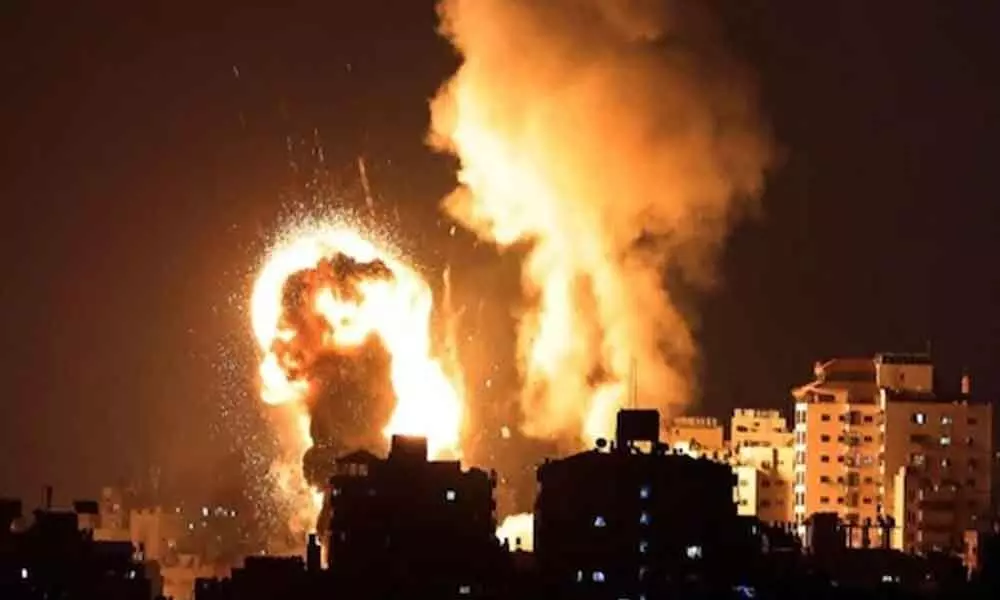The politics behind tension in Gaza

The politics behind tension in Gaza
Tensions between Israelis and Palestinians escalated further on May 11 as Palestinian militants in Gaza fired hundreds of rockets into Israel, which in turn ramped up airstrikes on the coastal enclave, as unrest spread to cities and towns beyond Jerusalem.
Signs of de-escalation are not to be seen at this movement. Hostilities between Israel and Hamas continue to escalate, with 35 Palestinians, including 10 children, killed in Gaza and five in Israel in the most intensive aerial exchanges for years. Local top leadership of Hamas has also been eliminated.
The Israeli military claims to have killed more than 15 Hamas commanders. Israel carried out hundreds of air strikes in Gaza into the early hours of May 12, as the Islamist group and other Palestinian militant groups fired multiple rocket barrages at Tel Aviv and Beersheba.
Hamas and Islamic Jihad in Gaza have fired at least 550 rockets into Israel since May 10. The militants say it is a response to the actions of Israeli police who fired stun grenades inside the Al-Aqsa mosque in
Jerusalem, one of the city's holiest sites on May 10 morning.
Hundreds of Palestinians were treated in hospital in ensuing clashes with Israeli police, in the most serious violence seen in the city in weeks. Israel called up 5,000 reserve troops to active duty, and an Israeli military spokesman said it would "enhance" its operation in Gaza after militants in Gaza extended the range of their rocket fire.
The Israeli military had conducted more than 150 strikes in Gaza as of May 11 afternoon, the spokesman said. In all probability the fighting is in its early stages. We should look at the politics behind the escalation more than any to understand the latest conflict.
The outbreak of hostilities led Netanyahu's political opponents to suspend negotiations on forming a coalition of right-wing, leftist and centre-left parties to unseat him after an inconclusive March 23 election.
Opposition leader Yair Lapid has three weeks left to establish a government, with a new election - and another chance for Netanyahu to retain power - likely if he fails. On the other hand Palestinian Legislative elections are also on cards later this month.
Mahmoud Abbas of the Palestinian Authority indefinitely postponed Palestinian legislative elections scheduled for later this month. It is no surprise that escalation with Hamas arrives exactly at the moment when the anti-Netanyahu bloc is trying to cobble up a "government for change."
At his toughest moments, as he battles for his political survival, Prime Minister Netanyahu is getting some unexpected help from his veteran ally, the Hamas movement. Conspiracy theories are rife. Some argue that Netanyahu deliberately engineered the escalation of tensions in Jerusalem.
Hamas is also experiencing a power struggle between its leadership outside Gaza and in Gaza with the external group pushing for confrontation with Israel and displaying militancy, while Sinwar prefers calm that would allow him to improve the conditions under which the enclave's residents live. How about deaths? Well, who is bothered. Politics is important.














